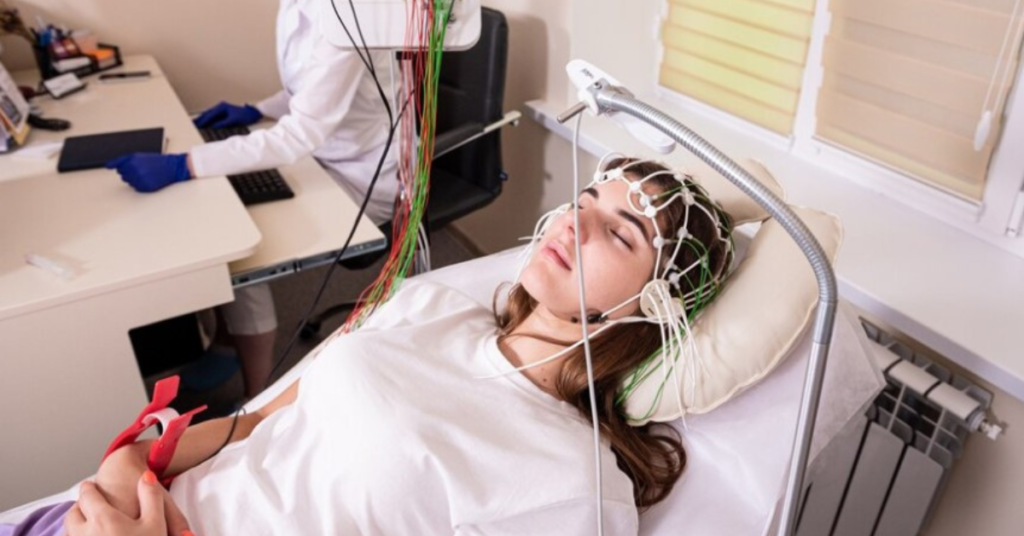Mental health disorders affect millions of people worldwide, and finding effective treatment options is crucial. One groundbreaking solution gaining popularity is Transcranial Magnetic Stimulation (TMS). TMS treatment for APN (Antisocial Personality Disorder) represents an innovative, non-invasive approach that could revolutionize the treatment of certain mental health conditions. In this article, we will explore how TMS treatment works for APN, its benefits, risks, and why it is considered a promising option in the mental health care space.
What is APN (Antisocial Personality Disorder)?
Understanding APN
Antisocial Personality Disorder (APN) is a chronic mental health condition characterized by a long-term pattern of manipulating, exploiting, or violating the rights of others. People with APN may exhibit deceitful, impulsive, and often dangerous behaviors. The condition usually begins in childhood or early adolescence and continues into adulthood.
Symptoms of APN
- Persistent lying or deceit to exploit others
- Disregard for the safety of others
- Impulsive behavior and lack of remorse
- Aggressive and sometimes violent behavior
- Inability to conform to social norms
Traditional Treatments for APN
Managing APN is challenging because the symptoms often lead to avoidance of treatment. Historically, treatments such as psychotherapy and medications have been the primary methods. However, these approaches sometimes fall short of providing long-term relief, necessitating the exploration of alternative treatments like TMS.
What is TMS (Transcranial Magnetic Stimulation)?
Overview of TMS
Transcranial Magnetic Stimulation (TMS) is a non-invasive brain stimulation technique. It uses magnetic fields to stimulate nerve cells in specific brain regions, particularly those involved in mood control and behavioral patterns. TMS has been extensively researched and is FDA-approved for treating depression. It is also being investigated for other mental health disorders, including APN.
How Does TMS Work?
During a TMS session, a coil is placed against the patient’s scalp, delivering brief magnetic pulses to the brain. These pulses create electrical currents that stimulate nerve cells, potentially improving symptoms related to mood and behavior. This process targets the brain’s prefrontal cortex, which is linked to decision-making, social behavior, and personality development—areas often affected in APN.
Key Features of TMS
- Non-invasive (no surgery required)
- No need for anesthesia
- Minimal side effects compared to medications
- Typically performed on an outpatient basis
TMS Treatment for APN: The Science Behind It
Why TMS for APN?
APN has been linked to structural and functional abnormalities in the brain, particularly in the prefrontal cortex. The prefrontal cortex regulates social behavior, decision-making, and empathy, all of which are compromised in individuals with APN. TMS offers a way to directly stimulate these brain regions, potentially normalizing activity and improving behavioral outcomes.
How TMS Targets Brain Activity in APN
- Regulation of Impulse Control: TMS can help regulate the neural circuits responsible for controlling impulses and aggression.
- Enhancing Empathy and Social Awareness: By stimulating the prefrontal cortex, TMS may improve the emotional and social awareness typically diminished in APN.
- Reducing Antisocial Behavior: Through repeated TMS sessions, patients may experience long-term improvements in behavior, reducing symptoms of deceit and disregard for others.
Evidence Supporting TMS for APN
While research is still in its early stages, preliminary studies show promise. TMS has been successfully used to treat other personality disorders and impulse control issues, suggesting that it could be effective for APN as well. Research points to improved emotional regulation, reduced aggression, and better decision-making in patients undergoing TMS for personality disorders.
The Procedure: What to Expect During TMS Treatment for APN
Initial Consultation and Assessment
Before beginning TMS treatment for APN, patients must undergo a thorough evaluation by a qualified mental health professional. This includes a review of their mental health history, current symptoms, and overall suitability for TMS. Not everyone is a candidate for TMS, so this assessment is crucial.
The TMS Session
A typical TMS session lasts between 30 to 40 minutes and involves the following steps:
- Preparation: The patient sits comfortably while a specialized coil is placed over their scalp.
- Magnetic Pulses: Magnetic pulses are delivered to the targeted brain regions. Patients will hear a clicking sound and feel a tapping sensation but should not experience pain.
- Relaxation: Many patients use the time to relax or meditate during the session.
Treatment Duration
TMS therapy usually involves daily sessions for several weeks. A standard course of treatment might last 4 to 6 weeks, with 5 sessions per week. Long-term effects and improvement in APN symptoms often require commitment to the full treatment plan.
Benefits of TMS Treatment for APN
Non-Invasive and Drug-Free
One of the major advantages of TMS treatment for APN is that it is a non-invasive procedure. Unlike medications, which can have a range of side effects (such as weight gain, fatigue, or gastrointestinal issues), TMS does not involve ingesting any drugs. This makes it an attractive option for individuals seeking alternative treatments.
Targeted and Personalized
TMS is highly targeted, focusing specifically on the areas of the brain responsible for the symptoms of APN. This precision reduces the risk of unwanted side effects and increases the likelihood of a successful outcome.
Minimal Side Effects
Unlike traditional treatments for mental health disorders, TMS has few side effects. The most common side effect is mild discomfort at the treatment site, which typically diminishes after the first few sessions.
Improved Emotional and Social Functioning
TMS treatment for APN has the potential to improve emotional regulation, empathy, and social awareness. These improvements can significantly enhance personal relationships and overall quality of life for those suffering from APN.
Risks and Limitations of TMS Treatment for APN
Possible Side Effects
Although TMS is generally well-tolerated, some patients may experience side effects such as:
- Headaches
- Scalp discomfort
- Lightheadedness
- Tingling or twitching in facial muscles
These side effects are usually mild and temporary. Serious side effects, such as seizures, are extremely rare but can occur in individuals with a history of seizures or epilepsy.
Treatment Limitations
TMS is not a cure for APN. While it can help manage symptoms, it may not work for everyone. Some patients may require additional forms of therapy or long-term care to maintain the improvements achieved through TMS.
Cost and Accessibility
Another consideration is the cost of TMS treatment. Depending on the country and healthcare system, TMS can be expensive, especially if not covered by insurance. Accessibility may also be an issue in regions where TMS clinics are not widely available.
Comparing TMS to Other APN Treatments
TMS vs. Psychotherapy
While psychotherapy remains the standard treatment for APN, TMS offers a novel approach that could be combined with talk therapy. Unlike psychotherapy, which requires active participation from the patient, TMS works passively by directly influencing brain function. Combining the two treatments could lead to more comprehensive care for APN patients.
TMS vs. Medications
Medications for APN often include mood stabilizers or antipsychotic drugs, which can come with numerous side effects. TMS provides a drug-free alternative, reducing the risk of adverse effects while offering targeted brain stimulation. However, medications may still be necessary for some patients, especially those with co-occurring mental health disorders.
Who is a Good Candidate for TMS Treatment for APN?
Eligibility Criteria
Not everyone with APN is a good candidate for TMS. Ideal candidates typically meet the following criteria:
- Have tried and not responded to traditional treatments like therapy or medications
- Are not pregnant or have metal implants in or near the head
- Do not have a history of seizures or epilepsy
- Are willing to commit to a multi-week treatment plan
Consultation is Key
Before starting TMS, it’s essential to consult with a psychiatrist or neurologist who specializes in this treatment. They can help determine whether TMS is appropriate and develop a personalized treatment plan tailored to the individual’s needs.
Future of TMS in Treating Mental Health Disorders
Ongoing Research
The future of TMS treatment looks promising. Ongoing research is exploring how TMS can be used to treat a variety of mental health conditions, including personality disorders like APN, obsessive-compulsive disorder (OCD), and post-traumatic stress disorder (PTSD). With advancements in technology and a better understanding of brain networks, TMS could become a key tool in personalized mental health care.
Integrating TMS with Other Therapies
Combining TMS with cognitive-behavioral therapy (CBT), dialectical behavior therapy (DBT), or medication management could create more comprehensive treatment plans for patients with APN. This integrative approach could help address the multifaceted nature of personality disorders.
Conclusion
TMS treatment for APN offers hope for individuals struggling with the symptoms of Antisocial Personality Disorder. This non-invasive, drug-free therapy targets key areas of the brain responsible for behavioral and emotional regulation, making it a promising alternative to traditional treatment methods. While TMS may not be a cure, its potential to improve impulse control, empathy, and social awareness makes it a valuable tool in the evolving landscape of mental health care. If you or a loved one suffers from APN, consulting a healthcare provider about TMS could







